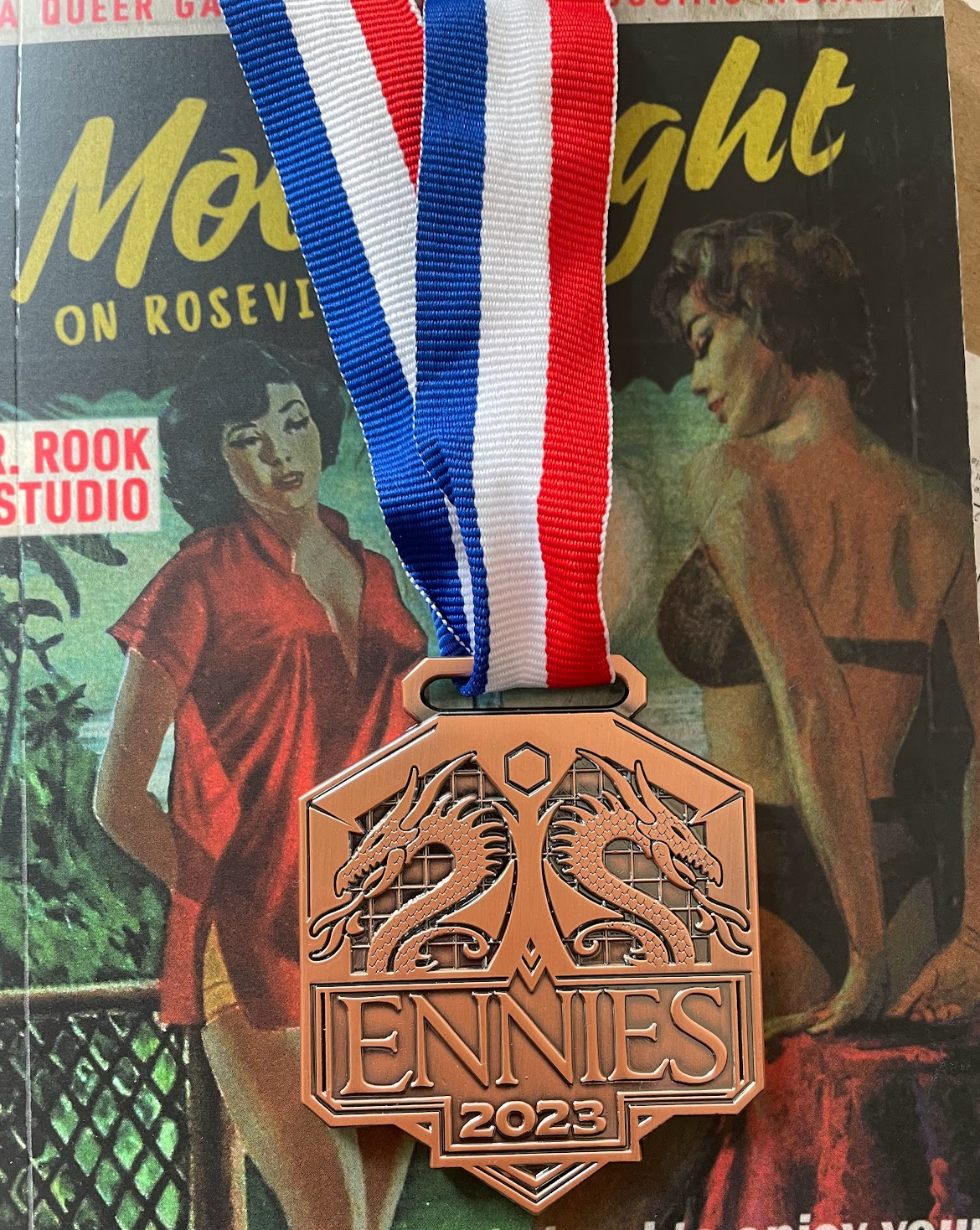Today's Reading List
Social Rolls and the 5e DMG (Traverse Fantasy)
Marcia digs into the D&D 5e DMG (so that the rest of us don’t have to?), and comes away with a really compelling summary of an underused (possibly unused) set of social procedure. I generally avoid writing firm player-facing social procedures into my games, but I think this could be worth interrogating/investigating further, especially since both Sherwood and Moonlight on Roseville Beach rely heavily on social interactions, and looking at these a little more deeply might help.
Narrative Picklists with OSR Tech (Was It Likely?)
Intrigued by Ms Screwhead’s Picaro’s Picklists, especially the meta-level suggestion of picklists as a new mode of play for those who’ve achieved a certain level of play mastery and awareness of the world and rules.
It clearly shares some connections/inspirations with games from the What’s So Cool About Jam?, inspired by Jared’s What’s So Cool About Outer Space?, from which I developed the ritual magic rules for Barrow Keep, but integrates two bits of PbtA tech that I frequently miss when I work with non-PbtA games: * Partial success * Picklists for success
And, of course, something I miss from WSC? games: Explicit situational modifiers: I find when they’re not explicit, they gradually get reduced to being a form of cheating on the player’s part.
It’s fairly clear how the two moves suggested could work with a BX-based OSR game like Beyond the Wall (I love you BtW) and help FKR-up that game. I’m curious how they might blend with a system like 24XX, Lumen, or Sherwood.
Adding picklists to something like 24XX (which already has a solid system for situational modifiers) is pretty straightforward and could smoothe out the stress of trying to figure out what happens on a mixed success. For instance, on a partial, you get one, on a full you get three (the examples included work fine). The same thing could really easily adapt Lumen — add (or remove) dice to the pool for situation modifiers and use/adapt these picklists. You could also do some cool stuff with 24XX disadvantage system so that you had to have at least one situational advantage to even get to use your d4 (especially if you’ve got disadvantages stacked against you).
Sherwood is already a 2d6 system with an advantage/disadvantage system that you could use to stack up (or shrink) die pools, as long as everyone can always gain at least one die. I’d want to separate arcane talents there from ritual magic, but that shouldn’t be too hard to do. The big adjustment here would be separating out results 7-, 8–9, 10–11, and 12, but since you’re already rolling 2d6, it’d be pretty straightforward.

Comments
Post a Comment